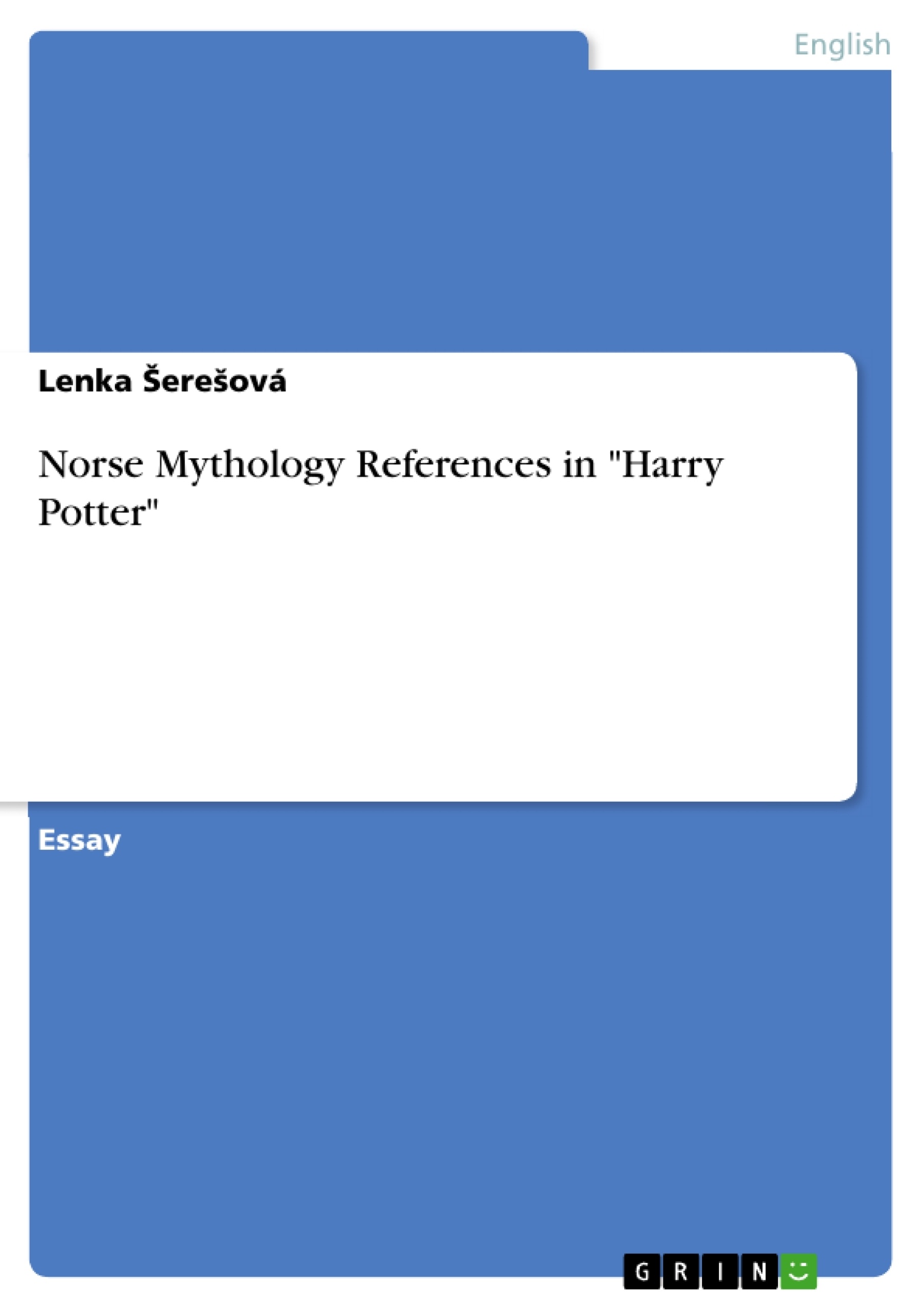The word Mythology is derived from mythos, which means “myth” (probably of unknown origin) and from logy meaning “study”. Although themes of myths may differ, they usually describe basic aspects of existence; they introduce stories about the creation of Earth, mortality of human race, or the division of the year into seasons. From the ancient times people felt the need to explain all the phenomena affecting their lives and that is probably why they created myths and legends; they blamed bad weather conditions on evil forces and when something good affected their lives, they, on the other hand, worshipped those supernatural beings that helped them. The mythology in Rowling´s novels is undoubtedly noticeable at the first sight, at least for the more aware eyes. She makes references to many mythical creatures and even some character names or spells are created according to mythology elements.
Inhaltsverzeichnis (Table of Contents)
- Mythology in general
- Norse mythology elements in Harry Potter novels
- Conclusion
- Sources
Zielsetzung und Themenschwerpunkte (Objectives and Key Themes)
This text examines the influence of Norse mythology on J.K. Rowling's Harry Potter novels. It explores how Rowling incorporates mythological elements, creatures, and themes into her narratives, demonstrating the rich tapestry of inspiration that informs her world-building.
- The use of mythical creatures and beings in the Harry Potter universe.
- The exploration of themes of good versus evil, morality, and sacrifice.
- The role of Norse mythology in shaping specific character names, spells, and plot elements.
- The comparison of mythological themes and motifs between Norse mythology and the Harry Potter series.
- The impact of Norse mythology on the overall tone and atmosphere of the Harry Potter novels.
Zusammenfassung der Kapitel (Chapter Summaries)
- Mythology in general: This section defines the concept of mythology, tracing its origins and explaining its significance in various cultures. It discusses the role of myths in explaining phenomena, shaping societal values, and providing narratives that reflect the beliefs and aspirations of different societies. The discussion focuses on the importance of myths in transmitting knowledge, fostering a sense of community, and providing a framework for understanding the world.
- Norse mythology elements in Harry Potter novels: This section examines the specific ways in which Norse mythology is woven into the fabric of the Harry Potter series. It explores the connections between characters, spells, and events in the novels and their corresponding elements in Norse mythology, showcasing how Rowling draws inspiration from this rich source of narrative and imagery.
Schlüsselwörter (Keywords)
This text explores the influences of Norse mythology on the Harry Potter universe, encompassing themes such as mythical creatures, good versus evil, character names, spells, and plot elements. It delves into the significance of Norse mythology in shaping the overall narrative and atmosphere of the Harry Potter series, emphasizing the rich tapestry of inspirations that inform J.K. Rowling's storytelling.
Frequently Asked Questions
How does J.K. Rowling use Norse mythology in Harry Potter?
Rowling incorporates Norse mythological elements through character names, the creation of mythical creatures, specific spells, and overarching themes of fate and sacrifice.
What is the origin of the word "Mythology"?
The word is derived from "mythos" (myth) and "logy" (study). Myths traditionally explain basic aspects of existence, such as creation, mortality, and the seasons.
Are there specific Norse creatures in the novels?
Yes, the paper explores how Rowling draws inspiration from legendary beings found in Norse sagas to populate the wizarding world with its unique magical fauna.
How do myths help explain natural phenomena in ancient times?
Ancient people created myths to understand their lives; for instance, blaming bad weather on evil forces or worshipping supernatural beings for good fortune.
Do character names in Harry Potter have mythological roots?
Yes, the study examines how several names and spells in the series are directly or indirectly based on elements from Norse and other mythologies.
- Quote paper
- Lenka Šerešová (Author), 2016, Norse Mythology References in "Harry Potter", Munich, GRIN Verlag, https://www.grin.com/document/345533



